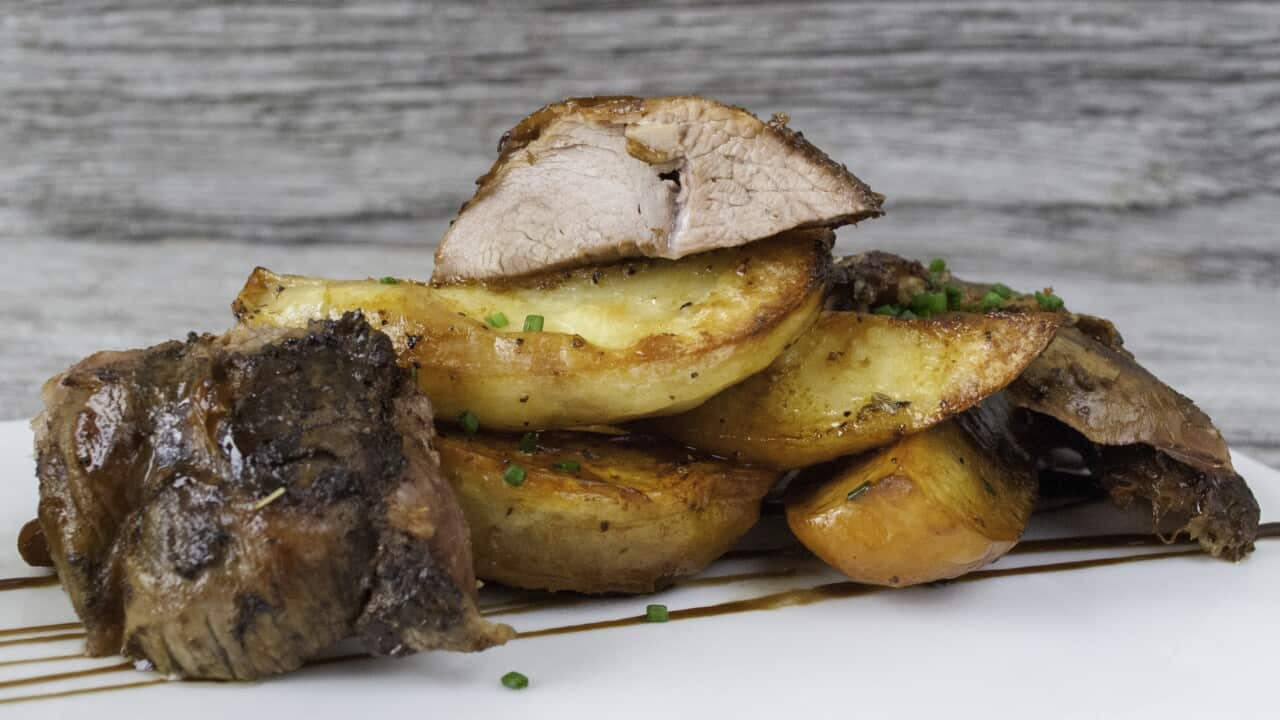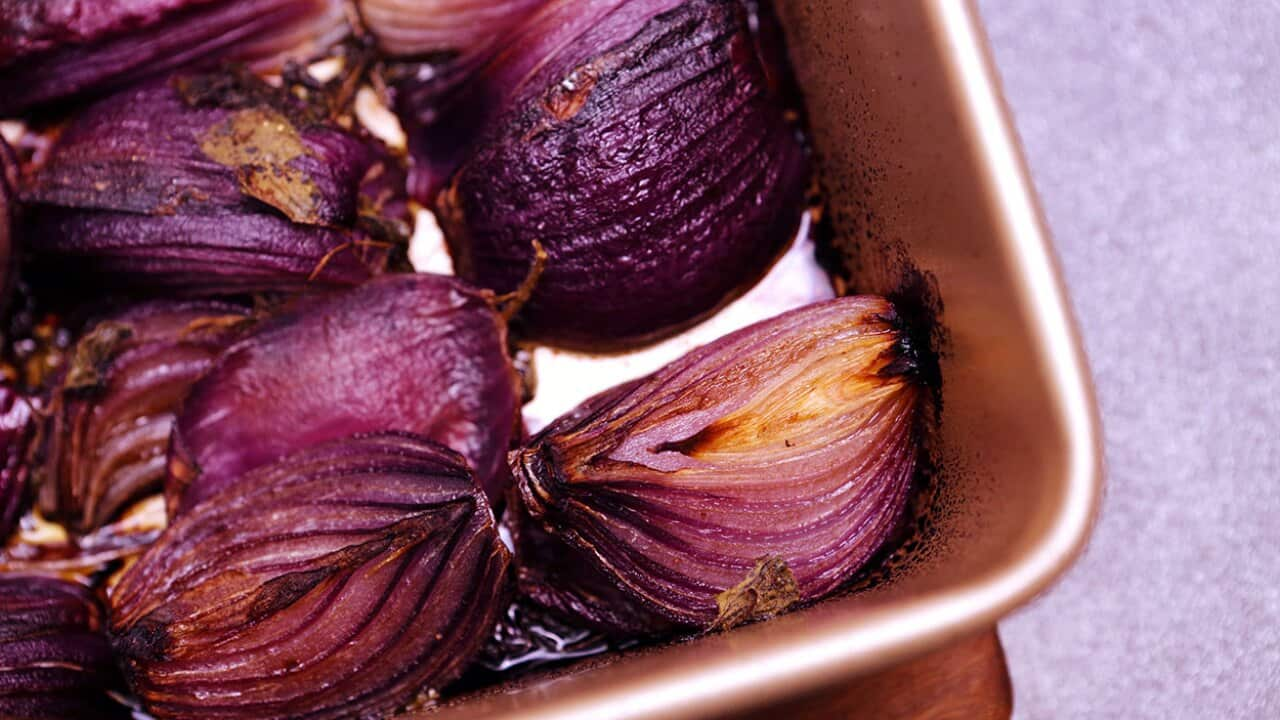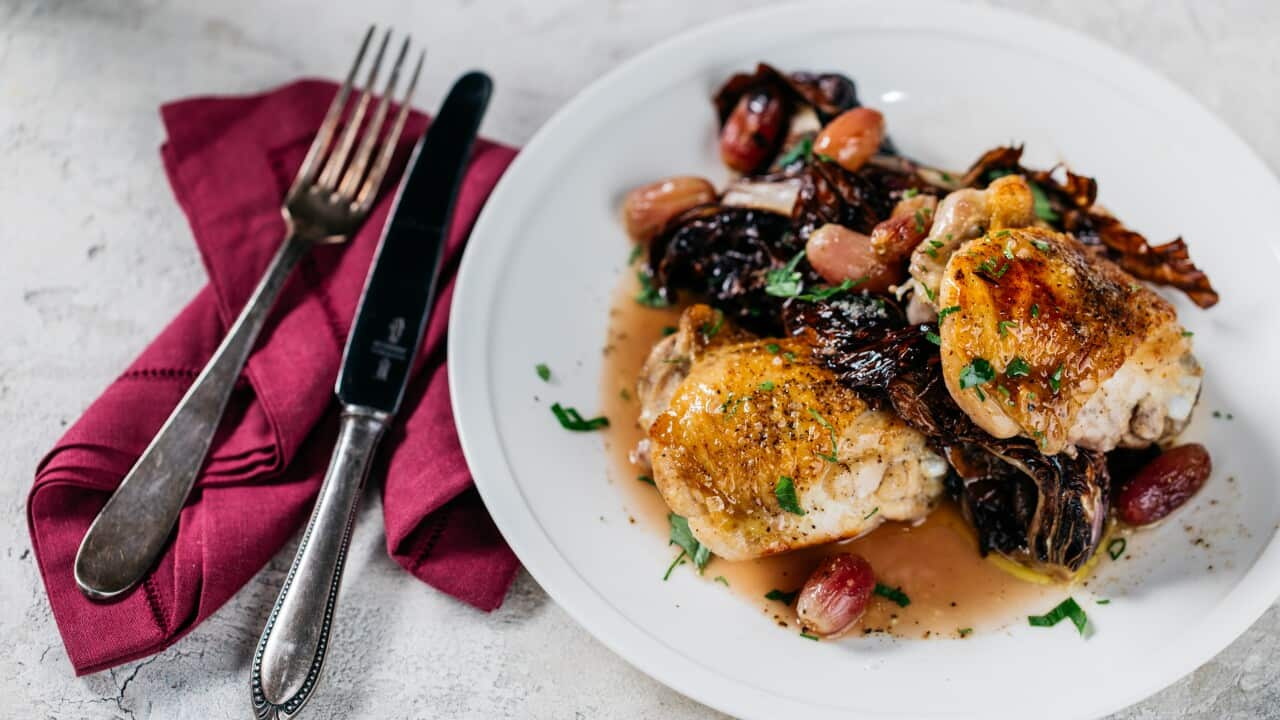There’s something intrinsically beautiful about reviving the cooking methods you inherited from your parents or grandparents in your own adult home kitchen.
But if you’re loved ones were big fans of boiling potatoes or your childhood memories are laden with images of overcooked broccoli or Brussels sprouts then you may need to leave any nostalgic attachment you have to boiling behind.
Themis Chryssidis, managing director of cooking school in Adelaide, tells SBS that boiling vegetables like potatoes, broccoli, corn, beans, cabbage, and sweet potatoes can be a ‘sometimes’ thing. Or preferably, it can be a cooking method left in the past.
Chryssidis believes “boiled vegetables are boring”. Other cooking methods like baking or stir-frying may be combined with olive or sesame oil, herbs, garlic, ginger and chilli to give your dish a lot more flavour.
When you boil vegetables, you lose some of their water-soluble nutrients.
Nutritionally, there’s also a big downside to boiling most vegetables.
“When you boil vegetables, you lose some of their water-soluble nutrients,” says Chryssidis, who’s also an Accredited Practising Dietitian. Examples of water-soluble vitamins include complex B vitamins (like vitamin B9/folate, vitamin B1/thiamine and vitamin B2/riboflavin) and vitamin C.
“Water-soluble vitamins are vitamins that are absorbed with water in our bodies. They are also what vitamins that aren't stored in our body, which means that we need to regularly consume these on a daily basis.”
According to an article published in in 2022, boiling a potato could result in eliminating as much as 80 percent of the vegetable’s vitamin C content. This happens as the water-soluble nutrients leach out into the water during the boiling process. That means that once you tip the water out of the pot after boiling, the potato’s vitamin C content could end up down the drain.
If you want an alternative to boiling potatoes, Chryssidis recommends baking them just like the Greeks do.
In Chryssidis’ Greek family, potatoes are typically chopped, dressed in plenty of olive oil, lemon juice, oregano and garlic, and baked in the oven.
“The potatoes are not necessarily golden in colour when they’re cooked because they spend most of their time in the oven covered in foil. This creates a steam pocket that helps to cook the potatoes, which is a good alternative to boiling them. But they end up really full of flavour.”
READ MORE

Roast lamb with potatoes
Why boiling 'most' vegetables isn't great
The researchers compared five cooking methods (boiling, microwaving, steaming, stir-frying and a combination of stir-frying and boiling) to see which retained the highest nutrient levels.
The results showed that all cooking methods – except steaming – caused significant losses of chlorophyll and vitamin C. But boiling was by far the worst offender. Boiling the broccoli for five minutes reduced the vegetable’s chlorophyll content by 27 per cent, while it hardly changed when steamed.
The boiled broccoli also dropped 33 per cent of its vitamin C content when stir-fried, while boiling resulted in a 38 per cent loss. Yet the steamed broccoli retained as much vitamin C content as its raw equivalent.
A published in the Journal of Food Science in 2009 also shows that peas, cauliflower and zucchini may lose over 50 per cent of their antioxidants when boiled.
However, carrot seems to be the exception. Research demonstrates that may increase their levels of . It may also boost its , making boiled carrots more fibre-fuelled than their raw competitors.
How about parboiling if it saves me time?
So where does that leave time-poor home cooks who were taught to boil or par-boil vegetables like potatoes, cabbage or broccoli, before finishing them under the grill, to get dinner on the table faster?
“As a general rule, the longer you boil most vegetables, the more water-soluble nutrients you lose,” says Chryssidis. “If you over-boil a vegetable, you're going to lose a lot of nutrients. But if you parboil a vegetable just to speed up the cooking process, then you won’t lose as many nutrients.”
So the take home is that not boiling most vegetables is usually the way to go, nutritionally. But if parboiling them means you actually get to serve up vegetables – because a quick dinner is a dinner that’s eaten – then no one is going to judge you. Chryssidis reminds everyone that eating more vegetables on a regular basis should be our overriding health objective.
As a general rule, the longer you boil most vegetables, the more water-soluble nutrients you lose.
“If parboiling means you’re more likely to eat vegetables because it speeds up the cooking process, and by doing so, you lose five per cent of the vegetables’ water-soluble nutrients, then that's still a pretty good outcome.
“You can finish off the vegetables by roasting them or stir-frying them later. In doing that, you’ll enhance the vegetable from a flavour perspective. If a vegetable tastes delicious, you’re more likely to keep eating vegetables and that’s a good thing.”






